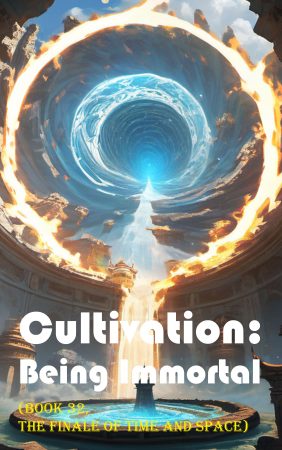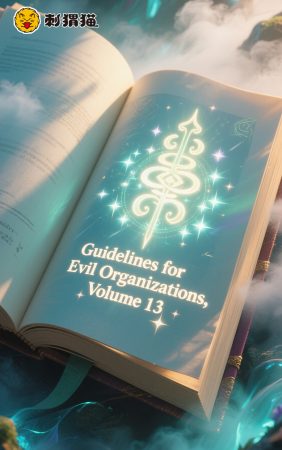Chapter 21
Our Discord Server: https://discord.gg/PazjBDkTmW
You can buy coins here to unlock advanced chapters: https://gravitytales.com/coins-purchase-page/
Chapter 21: The Determination of the Prince Regent
The South German War was originally just a small skirmish.
Due to pressure from nationalistic sentiments at home and the desire to seize advantage, Emperor Napoleon III sent a detachment of 17,000 troops to occupy South Germany, which did not offer much resistance as there were many traitors and pro-France supporters there.
The German Confederation, also seeking to maintain feudal rule, formed a weak coalition army under the matchmaking of Prussia’s Chief Diplomat, Mrs. Bismarck.
None of the soldiers in the coalition army truly fought for their homeland or national glory; in fact, they didn’t care much about the minor lords in South Germany.
Prussia’s main goals in sending troops were to boost its prestige, establish leadership in North Germany, and then consider the interests of the puppet state of Baden. Prince Regent Redel didn’t particularly care, as Prussia’s influence in South Germany was insufficient, and the puppets were disloyal and two-faced.
If France had truly threatened Prussia’s core interests, Your Highness the Regent would have declared a national mobilization long ago.
In this war, the attitude of the Prussian Prince Regent was to use it as an opportunity to raise his own banner, with the outcome being of little importance but winning being preferable.
The other German princes were swayed by Bismarck’s letter and had no intention to win the war; leading troops abroad, they secretly hoped for unrest at home so they could carry out their idea of a just bloodbath.
Where are the pure soldiers and military commanders in this war?
On April 29th, the eastern and western forces of the Germany coalition army met up. The troops that had originally gathered in Berlin were transported by rail to Cologne for a rendezvous.
The military strategic value of this railway in Prussia immediately caught the attention of all the nobles. When officers from various countries saw it, they thought, "Wow, railways are great! But… the German nobles are mostly poor with small territories, so they can only envy the railways."
At Cologne train station, the overall commander of the coalition army, Lieutenant General Moltke, was helped by his aide as he stepped off the train onto the platform.
The troop transport carriages were converted coal cars. Moltke didn’t ask for any special treatment. He endured a day and a night squeezed together with regular soldiers. By now, he felt like he was about to die.
"Let Ron know, the strategic value of railway troop transport is very high, but… ugh~~~"
The platform was full of dizzy soldiers collapsing and vomiting. This was the first time in human history that the Blue Star people transported troops on a large scale by railway. Ninety-nine percent of the soldiers in the coalition were riding a train for the first time. They endured over thirty hours in dark and stuffy carriages, it was simply a nightmare.
Moltke was considered average height among Easterners, but in Prussia he was seen as "physically weak". The veteran generals from the General Staff Department liked to mock him for being as skinny as a stick. After a day and night of train journey, he fell ill and couldn’t get up.
He was immediately taken to a nearby rural sanatorium from the train station. The village doctor said, "Your condition is easily treatable, just need a bloodletting using a washbasin."
Luckily, the bloodletting therapy was stopped by the deputy, Moltke almost passed out.
The famous Prussian military strategist Clausewitz, who wrote "On War", first caught cholera and then died from bloodletting by trained doctors.
Last year, Prussia established a military medical and field medical training academy, promoting scientific treatment of diseases and injuries. All mid-level officers also received short-term training, with the textbooks personally written by the prince regent.
If you are sick, do not drink the witch doctor’s medicine, do not use bloodletting therapy, do not rely on prayers to cure the illness. Instead, take a warm bath, eat well, drink well, and get plenty of sleep.
If you are injured, rinse the wound with clean water, bandage it with clean cloth, and then eat well, drink well, and sleep.
In this era, there are no reliable medicines. The most important thing is not to treat indiscriminately, but to let the body’s immune system heal all diseases.
Moltke was bedridden but still insisted on working. He instructed the officers to visit every allied camp, detailed the organization of each unit, specific branches, weapons and equipment, logistics supplies, and strengthen communication to familiarize the troops with each other.
This time, Prussia dispatched the 1st and 2nd Royal Guard Cuirassiers, the 1st and 2nd Royal Guard Dragoons, with a total of 3,500 combat personnel, mobilizing half of the Royal Guard Cavalry Corps.
However, General Catherine did not take part in this battle. She stayed in Berlin to ensure the safety of the capital and the prince regent, and handed over the command of the front line to two young colonels.
Hecate von Kraist is 28 years old.
The Kraist family is known as the embodiment of swords and music, genius and wisdom, bravery and artistry, with outstanding military strategists and artists emerging in each generation.
Ignaz von Mantofel is 25 years old.
Hailing from a prestigious military family in Prussia, the Mantofel family genes tend to make the males shorter in height. Ignaz is only five feet four inches tall. His wish is to marry a taller woman in hopes that their offspring will be taller.
Catherine’s Bittenfeld family specializes in heavy cavalry, from the time of the Teutonic Knights to the present day. The current deployment includes light cavalry such as dragoons and lancers, and she entrusts the task to Kraist and Mantofel.
These two young colonels did not disappoint Catherine’s expectations. Without even seeing the enemy faces, over twenty soldiers died and hundreds of horses were lost.
Kraist, with a cigar in his mouth, looked worried as he patrolled the train platform, followed by Mantofel.
"Trains are great, but those cursed troop cars and horse cars have been our downfall."
"The troop cars are as tightly sealed as cans, and the horse cars… don’t even have proper enclosures, just flatbeds with wooden fences. Many horses get startled and jump off, resulting in fatal accidents."
The train station was filled with wailing, vomit was everywhere, and the soldiers looked extremely weak. Inside the carriage, it smelled terrible, even the janitors wearing masks could smell the strong odor.
As a new military transportation method, Blue Star humans’ first large-scale railway transport lacked proper planning, causing numerous problems. Overall, it was quite a failure.
After Prussia’s train finished unloading, another one arrived half an hour later, carrying five thousand elite soldiers of the Grand Duchess of Mecklenburg.
Kraist asked, "Do you want to go greet them?"
The short Mantofel shook his head, already envisioning what would happen when the carriage opened.
Prussia’s first generation transport carriage was modified from a coal carriage, adding a canvas roof. It was very simple, with no doors or windows that could be opened, using integrated side panels that opened sideways.
Over thirty hours ago, the soldiers were loaded into the carriage and had been trapped inside, with nowhere to relieve themselves, until finally arriving at the station. The side panels tilted and slid open, releasing a strong stench on the platform.
Kraist and Mantofel witnessed a familiar tragic scene, with Mecklenburg’s troops suffering even more casualties and losses during transport, leading to greater combat effectiveness.
Mecklenburg’s officers arrived in a passenger carriage, looking quite dignified.
The two of them went to meet with General Newman of Mecklenburg, after some counting, this time the railway transport reduced Mecklenburg’s troops by a hundred and seven.
Mantofel frowned, "This loss is too terrible."
General Newman, however, didn’t think it was a big deal. He looked down at the short Mantofel and said, "Those who died were all part of the freedom army, so what if they died."
Mecklenburg’s military system was quite unique, the five hundred guards of the female duke were the regular army; apart from that, there were no other military forces. Mecklenburg didn’t have a central city; it mainly consisted of scattered agricultural villages and towns. Almost every household, be it landlord or farmer, had a gun.
When the war came, upon the order of the female duke, the freedom army would gather and go to battle. The essence of these five thousand "elite soldiers" participating in the allied forces this time were armed farmers. They weren’t even considered militia because these armed farmers hadn’t received any military training; they just had inherited rifles from their ancestors.
Newman didn’t care if these farmers lived or died; he thought this train journey was quite good, and his carriage was quite luxurious.
The two majors from Prussia were speechless. You can think like that, but don’t show it so obviously. At the very least, act like you care for the soldiers and show some concern for the people. Your armed farmer troops are in a miserable state, and here you are proudly saying how comfortable your carriage is.
As night fell, a thousand elite soldiers from Sachsen arrived at Cologne station, this time there were no tragic events, they were just here for an outing.
The troops from Sachsen were all transported in passenger carriages, the soldiers were in great spirits. When Kraist and Mantofel went to greet them, the thousand elite soldiers were so drunk they couldn’t find their way, the leading officer was sleeping like a log, and couldn’t be woken up no matter how much they called.
Mantofel found out that their weapons filled four train carriages, while the oak barrels filled with liquor filled up seven carriages.
As for the other allied troops, they had various problems. The two wandered around the camp outside the train station, but couldn’t find a single officer.
Sachsen, Aldenburg, and Hessian troops from Kassel arrived in Cologne days ago. Their officers were exploring the city, and there weren’t many soldiers in the camp as they were causing trouble for nearby villagers.
Whenever Prussia felt defeated by England, France, Austria, or Russia and felt worthless, they would look at the other German princes and regain their confidence instantly.
Kraist and Mantofel investigated the specific situation of the allied forces, reporting all information to the commander. Moltke, who was bedridden, was too weak to be angry.
"Tired, let it be destroyed." Moltke (limited by a sense of hopelessness)
Hardly anyone in the entire allied forces was there to win the battle. Moltke pondered, unsure how to lead this group of useless people in fighting the French. He felt cursed, believing there were all sorts of monsters under his command each time he led soldiers.
Despite the poor quality of the personnel, the entire allied forces of 17,000 people were found to have only 15 cannons in total. Ah, this…
"Send a telegram to Your Highness the Regent, requesting reinforcements, or ask the all-powerful Bismarck to bring in more friendly troops. The current state of the allied forces is completely inadequate for facing the French in battle, and I, Moltke, am powerless."
Berlin, Redel-Catherine Palace.
"This is a message from General Moltke, what do you all think?"
The prince regent called together several key officials to discuss the issue of the South German war, as the French army crossed the border yesterday while the German coalition forces remained in Cologne.
Catherine said that this was just a limited small-scale war that did not directly concern Prussia’s core interests, so she did not recommend sending more troops to reinforce the front lines.
Anna stood up and caught everyone’s attention.
"This South German War must be fought and at least end in a draw. We need this opportunity to establish our authority, confirm Prussia’s leadership in North Germany, as this directly impacts our future strategy."
"But Bismarck…" Ron said worriedly, "Prussia’s army is currently undergoing comprehensive military reforms, with a newly adjusted standing army, new weapons and tactics. They are not ready for the battlefield. If we must fight the French, we will need to commit a lot of troops, even resorting to conscription."
Anna was firm in her stance, disagreeing with Ron and Catherine. The war must be fought and won, not just for future strategy but also to align with popular sentiment.
The Prussians despised the French and now that the French army was invading the German states, if Prussia did not firmly retaliate, how could they justify it to the people?
Baron Schultz, "We can turn our defeat into a victory by exaggerating the French army’s intentions. We can tell the people that the French originally wanted to conquer all of Germany, but after our tough battles in Prussia, they only managed to occupy South Germany. We successfully defended Berlin, so this is a great victory."
Everyone, "You are truly despicable, Schultz."
The prince regent then spoke up sternly, warning Schultz not to make such ridiculous suggestions. He said that if we try to make failure look like success and deceive ourselves, then we will be even more of a failure.
Leader One’s decision is the most important. He has to decide whether to continue the South German War or let the prince regent make the decision. But for now, he hasn’t made up his mind and needs more information.
A heated debate started in the office. Military representatives Ron, Catherine, and Hans all disagreed with escalating the war, and even Baron Schultz thought it shouldn’t be fought.
Only Anna, with a determined tone, insisted that the war must go on, using any means necessary, even if it affects the country’s short-term economy and requires a draft.
Meanwhile, the Cabinet Office and Parliament were also arguing, with politicians and lawmakers discussing the South German War issue.
The public mainly urged the allied forces to act quickly. General Moltke and the allies were stationed in Cologne, which made the people unhappy. The French had invaded, so why weren’t they fighting back?
As the prince regent, Leader One needed to listen to everyone’s opinions and move beyond biases. Everyone had different perspectives on the issue, with unique and one-sided views.
In the morning, he held a meeting in the office to see Anna and three military officers arguing.
In the afternoon, Leader One went to the Cabinet Office to hear opinions from all cabinet departments on the war and its impact on various domestic areas.
In the evening, Leader One changed into casual clothes, disguised himself and went to the streets and square to listen to people discussing the war and speeches by opposition politicians.
Later in the evening, he visited a veterans club and chatted with a group of middle-aged and elderly soldiers from the Napoleonic Wars era.
Leader One had already made up his mind.
The next morning, another meeting was held, where the Prince Regent told his advisors that the war must continue, and that they cannot allow the French to occupy South Germany or establish a puppet government there.
Anna was delighted that the Prince Regent supported her, as she would be very disappointed if Leader One chose not to fight.
Leader One said, "This is a great opportunity to foster patriotism and national pride, to erase the psychological shadow left by the Napoleonic era on Prussia, unify North Germany, weaken Austria’s influence over North Germany, and strengthen Prussia’s leadership position. Our army also needs the challenge of war to find the right path, learning and adapting on the battlefield."
"I know this war will be difficult, but I believe we can overcome all obstacles."
"Now issuing a call to arms, we need five thousand fighters, ten thousand non-combatant support personnel, volunteers will be mobilized, not forced, priority will be given to selecting from the citizen class."
"Tell the people, the shameless French aggression is not just an insult to Germany, they want to disrupt Prussia’s development with war, the French do not want us to live in peace, pick up arms, join the army, defend our German land."
Leader One sent Anna to conduct diplomatic activities, try to get England and Austria to send troops to help, also persuade the German princes to increase their reliable forces to the front line.
While Ron goes to the General Staff Department to coordinate with the old generals on new plans for the expanded scale of the war.
Catherine and Hans immediately prepare for the expedition, Moltke needs strong support.
Leader One carefully considered that if Prussia expands the war effort, France will likely increase its forces as well, possibly hiring Swiss soldiers, or South German princes might turn into pseudo soldiers on the spot, in that case…
Then he will send all the elite cavalry troops, all the Teutonic Knights, the first division of the regular army, and four volunteer regiments.
The reinforcements for Moltke include over fourteen thousand combatants, including over a hundred Magic Energy Knights, should be enough to drive the French out of the German region.
If that’s not enough, the mobilization will continue, the deployment of regular troops to the front line will continue, Leader One’s determination will not waver, the South German War must be won, there is no room for losing.
"Moltke wants something, I give him what he wants. If he needs more people, I send more soldiers. If he needs money, I provide funds. He just needs to bring victory back to me."
Moltke received a message from Your Highness the Regent about more soldiers, he was very happy and surprised that the prince regent would give him so many soldiers and extra money.
Even though still sick, Moltke immediately led his army south with the allied forces towards the South German region. He now believes he can win this war.
The support troops will gradually arrive within half a month. Before that, Moltke will have to lead a group of allied forces to fight against the French.
Despite this, he is not afraid. He plans to engage in small battles with the allied forces, harass the French, and if the opportunity arises, try to have a major battle until all the reinforcements arrive.
"I not only want to drive the French away, but I also want to go all the way to Alsace-Lorraine!" Old Moltke said with great ambition.












